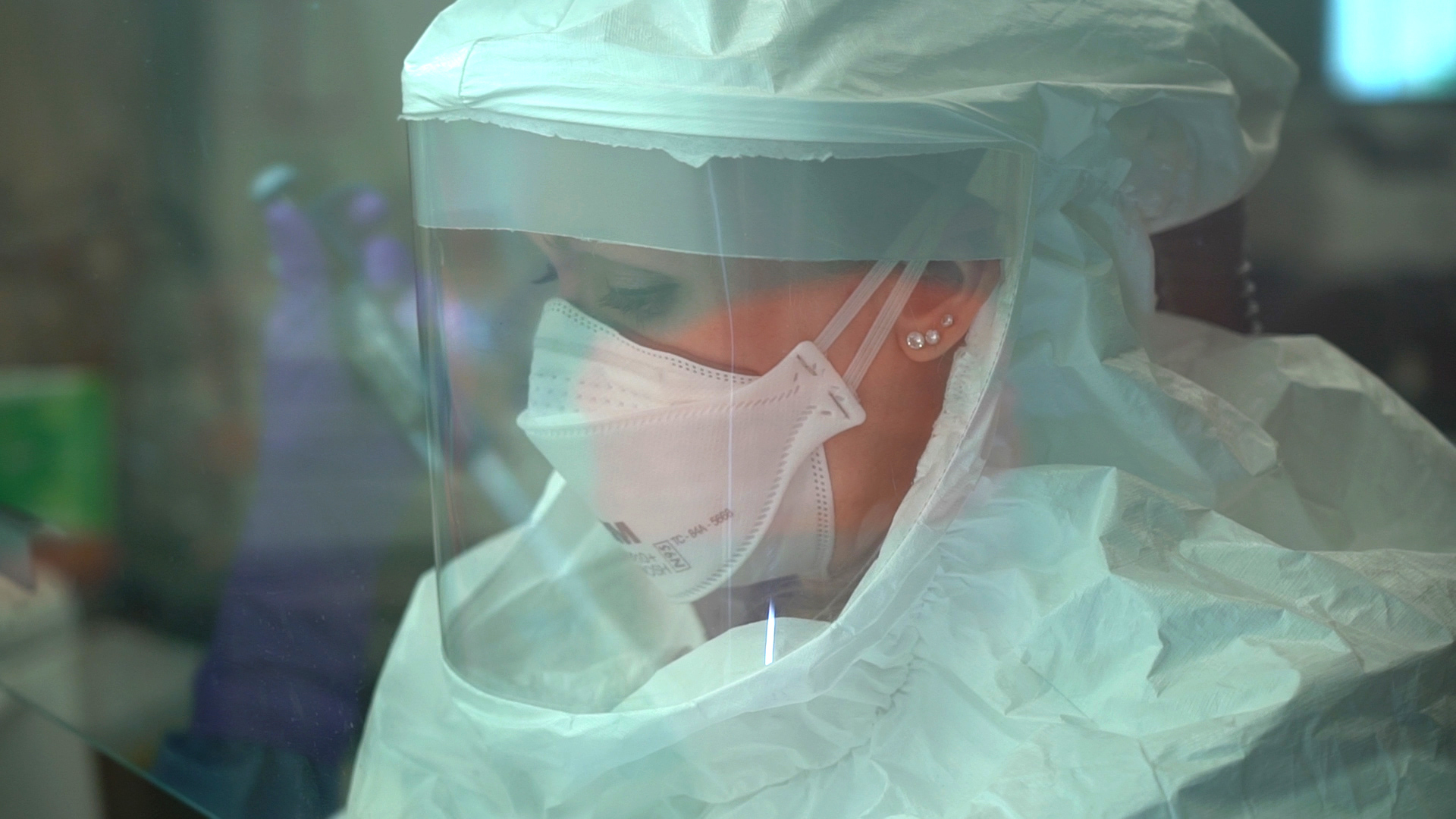A team of infectious disease researchers at Colorado State University has entered into an agreement with the Biomedical Advanced Research and Development Authority (BARDA) to further develop a novel virus inactivation process, successfully used for MERS, which has the potential to inactivate the SARS-CoV-2 virus.
BARDA is part of the Office of the Assistant Secretary for Preparedness and Response at the U.S. Department of Health & Human Services.
CSU will receive $699,994 from BARDA to support preclinical research on the vaccine technology process – known as SolaVAX – which repurposes a commercial platform that is currently used to inactivate pathogens in blood transfusions. The strategy uses UV light and riboflavin to produce an inactivated virus which stimulates a person’s immune system to fight the virus.
The university will contribute $448,143 to support this project, bringing the total contribution for this phase of the research to $1.15 million.
This project will demonstrate the effectiveness of the SolaVAX process to inactivate SARS-CoV-2, which causes COVID-19 and could potentially advance vaccine manufacturing capabilities on a global basis.
“We are building off of nearly 20 years of experience of using this process to improve the safety of blood transfusion products,” said Ray Goodrich, executive director of the Infectious Disease Research Center at CSU. “That prior knowledge and current experience helps to translate this rapidly into a way to manufacture vaccine products,” he added.

Izabela Ragan, a postdoctoral fellow in biomedical sciences, works in a training lab at CSU.
Platform inactivates another coronavirus
During this global pandemic, the ability to produce large quantities of vaccines in a cost-effective manner is critical. The SolaVAX platform has already been shown to inactivate MERS-CoV – another virus in the coronavirus family – very efficiently and has also been evaluated for production of other vaccine products.

As the research progresses, the team will scale up production of the virus and key reagents for research and manufacturing at the university’s BioMARC biomanufacturing plant. The Biosafety Level 3 cGMP (BSL-3) facility is already making products for other infectious diseases under sponsorship from the federal government, industry and major foundations; cGMP stands for Current Good Manufacturing Practices, as designated by the U.S. Food and Drug Administration.
The Infectious Disease Research Center is home to one of 14 labs across the country that are part of the Regional and National Biocontainment Laboratory network under the National Institute of Allergy and Infectious Diseases.
Alan Rudolph, CSU’s vice president for research, said this new award to support the development for SolaVAX highlights the university’s prominence in infectious disease research and the response to the COVID-19 pandemic.
“Our researchers have moved swiftly to provide the state, the nation and the world a range of potential solutions and medical countermeasures to the virus,” he said.
Rudolph expressed gratitude for the support from the state’s congressional delegation for the university’s application to BARDA.
“We sincerely appreciate the encouragement and recognition of our efforts from Colorado’s congressional delegation and, in particular Sens. Michael Bennet and Cory Gardner, and their staff.”